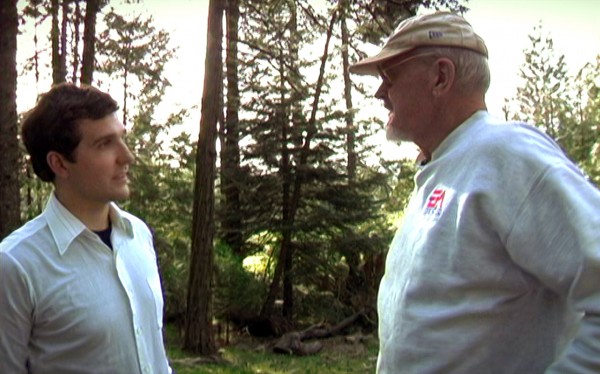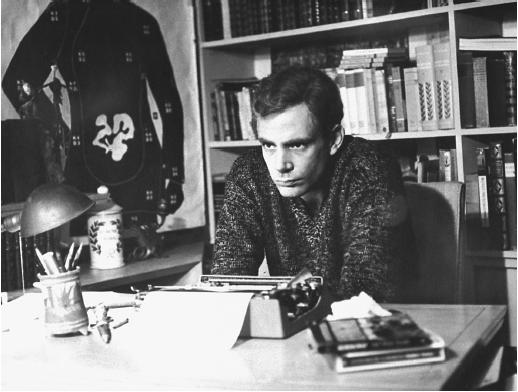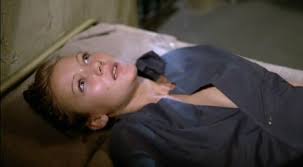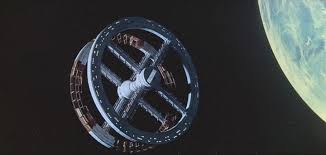Since my move to Toronto I had to reconsider the mandate and title of
Ottawa Film Review. Now that I am a Toronto resident, I decided to change the title to
Ottawa-Toronto Film Review. I would have removed the Ottawa- from the title except that would force me to change the url, which would cause major revamping. Maybe one day… Anyways, what can be expected from
Ottawa-Toronto Film Review in the next while? I want to change my traditional monthly film listings from a mere listing to a written paragraph format (see below). Ideas for pieces that I have been ruminating: (1) Write a piece on two films from the Toronto-based production company MDFF; Kazik Radwanski’s
Green Crayons and Antoine Bourges’
Woman Waiting; both films premiered at the TIFF 2010
Short Cuts Canada. (2) Finish reading James Quandt’s (the senior programmer of the TIFF Cinematheque) book on the Thai director
Apichatpong Weerasethakul (FilmmuseumSynemaPublikationen; 2009) in the hopes of writing a book review. And, (3) see more Zacharias Kunuk’s films that are available to view at the Isuma Productions website. I will just be doing generic posts with all the screenings I see and an arbitrary star ranking, and I hope it is clear, this website prides itself on the longer pieces, the criticism and the reporting, and not on the minor viewing acknowledgements.

At the
Toronto Film Society on Monday November 15th at 7:30PM there is a double-bill that consists of Jules Dassin’s
Thieves’ Highway (1949) and Martin Ritt’s
Edge of the City (1957). The Toronto experimental film collective
Pleasure Dome is having a few screenings in November. I will keep seeing all the TIFF
Essential Cinema films that I have yet too see and others that I want to re-see; so far I have seen eighty-four out of one-hundred and I hope to do a personal top ten afterwards. There are a few
Exclusive Engagements that I want to see;
Le Pere de mes enfants, The Light Thief, and
I Wish I Knew. On Friday November 5th the Bloor Cinema will have a free screening of
Scott Pilgrim vs. the World with the director Edgar Wright in attendance. Later on in the month at the Bloor Cinema there will be screenings of
Small Change (Nov. 7th – 9th) and
Blow Out (Nov. 25th, 9:30PM). I have also discovered the 18th annual
rendezvous with madness film festival (Nov. 5th -13th), which has some interesting titles like Denis Villeneuve’s
Next Floor (Nov. 6th; 8:30PM) and William D. MacGilivray’s
The Man of a Thousand Songs (Nov. 13th; 8PM). As well there is the 14th annual
Toronto Reel Asian International Film Festival; I particularly look forward to see Clement Cheng and Derek Kwok’s 70s kung-fu ode
Gallants (7PM; Bloor Cinema); the directors will be in attendance and afterwards there is the opening night gala party at the Century Room (free with a screening stub). Yeah and finally I will go see any cool-looking new releases; right now I want to see Stephen Frear’s
Tamara Drew.
- David Davidson*****Johnny Guitar (Nicholas Ray, 1954)
Essential Cinema # 63*** (A Must-See)
 *****Winnebago Man
*****Winnebago Man (Ben Steinbauer, 2009)
* (Has redeeming facets)
 *****Singin' In The Rain
*****Singin' In The Rain(Stanley Donen & Gene Kelly, 1952)
Essential Cinema # 62 **** (Masterpiece)
 *****Memories of Underdevelopment
*****Memories of Underdevelopment (Tomás Gutiérrez Alea, 1968)
Essential Cinema # 68*** (A Must-See)
 *****Le père de mes enfants
*****Le père de mes enfants (Mia Hansen-Løve, 2009)
*** (A Must-See)
 *****Good Neighbours
*****Good Neighbours (Jacob Tierney, 2010) *Director in attendance.
** (Worth Seeing)
 *****Tamara Drew
*****Tamara Drew (Stephen Frears, 2010)
** (Worth Seeing)
 *****Recent Video by Gary Kibbins
*****Recent Video by Gary Kibbins *Director in attendance.
Pleasure Dome7 Questions About Bicycles (2009) &
The Unlucky Sailor (9 Unread Chapters of Finnegans Wake) (2010)
 *****Gallants
*****Gallants (Clement Cheng & Chi-kin Kwok, 2010) *Clement Cheng in attendance.
** (Worth Seeing)
Reel Asian *****A Film For Ollie Gilbert
*****A Film For Ollie Gilbert (Scott Cudmore, 2010) *Director in attendance.
** (Worth Seeing)
107 Shaw Gallery *****I Wish I Knew
*****I Wish I Knew (Jia Zhangke, 2010)
*** (A Must-See)
 *****The Land Left Behind
*****The Land Left Behind (Juan Camilo Sarmiento, 2010) *Director in attendance.
*** (A Must-See)
aluCine *****Bringing Up Baby
*****Bringing Up Baby (Howard Hawks, 1938)
*** (A Must-See)
Essential Cinema # 61 _12.jpg) *****Cléo de 5 à 7
*****Cléo de 5 à 7 (Agnès Varda,1962)
**** (Masterpiece)
Essential Cinema # 96 *****Edward Scissorhands
*****Edward Scissorhands (Tim Burton, 1990) *Director in attendance.
*** (A Must-See)
 *****Barbed Wire Dolls
*****Barbed Wire Dolls (Jess Franco, 1975)
** (Worth Seeing)
 *****Kings of Pastry
*****Kings of Pastry (Chris Hegedus & D.A. Pennebaker, 2009)
** (Worth Seeing)
 *****The Light Thief
*****The Light Thief(Aktan Arym Kubat, 2010)
*** (A Must-See)
 *****The Third Man
*****The Third Man (Carol Reed, 1949)
*** (A Must-See)
Essential Cinema # 91  *****Dust in the Wind
*****Dust in the Wind ( Hou Hsiao-Hsien, 1986)
**** (Masterpiece)
Essential Cinema # 69  *****Blow Out
*****Blow Out (Brian De Palma, 1981)
*** (A Must-See)

































_12.jpg)







